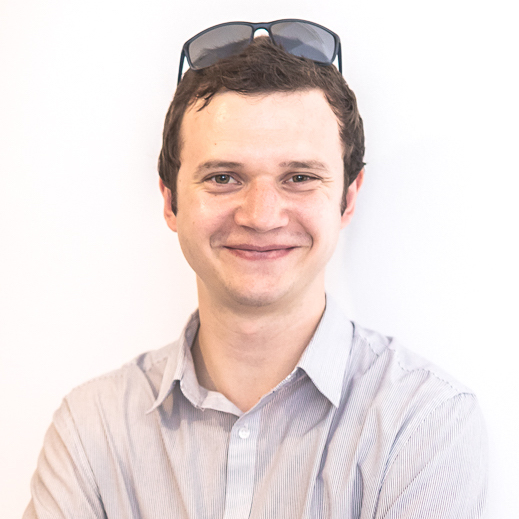Károly Dénes is a PhD student since 2016 at the Physics Doctoral School.
The title of his thesis is ”Synchronization patterns in rings of locally coupled Kuramoto oscillators.” The presentation will be hold on ZOOM, on the 4th of March 2021 at the following link: https://zoom.us/j/91869326078? (link) Meeting ID: 918 6932 6078 Password: V9FYwJ
The PhD coordinator of Károly is Prof. Dr. Néda Zoltán.
1. How would you describe yourself in 3 words?
It. Is. Impossible. : ) I understand that we like to categorize things, even humans too, but I am not really good at this. If I have to say three traits I value and try to live by it would be: honesty, simplicity and precision. There you have it.
2. Who or what inspired you the most to do what you do now?
I would not say that there is someone like a role model or inspirational character in my life and I could not mention an exact moment which changed me or helped me to be who am I now either. Life is full of hard and ambiguous situations in which one has to choose carefully between different opportunities, so I think every little decision had a part in the formation of myself. However, when it comes to role models I’d say that you can and should learn something from anybody you meet so,I try to live up to this simple “rule” rather than focusing on one idealistic person. This, of course, does not mean, that there is no one who has more influence on me than others. I would count here my parents, my supervisor (I believe having a good supervisor solves half of your problems during PhD years, so I was lucky in this way!), and some of my high school teachers and professors from university. Thank you all!
3. What do you reproach the most on university education and doctoral studies in general in Romania?
Well, I can not speak generally but I think the country’s educational system was not ready for the shift to the Bologna process I my opinion. It is true that my generation was still young at that period, but most of the professors started to teach in the old system and it seems that the shift was done in a hurry and not well thought out. We heard many times from our professors how they taught something “in the old days, before Bologna”. Was it better or not? I don’t know, but starting a new system is never easy and sometimes the students “suffered” from it and many topics were simply left out in order to accommodate the classes in the new system. I am not blaming the professors because I think most of them thinks the same, however this change had its drawbacks too.
4. Do you feel disadvantaged for not choosing to study a doctorate abroad?
The simple answer is no, but I can give a more elaborate and reliable answer if you ask me ten years later. My research, which is on the boundary of theoretical physics and applied mathematics, does not require any expensive equipment which may be hard to acquire here. However for an experimentalist these equipments are crucial so sometimes the only option is to leave, but not in my case.
5. How do you manage the professional activity and free time?
Some say that you can always make time for something you really love. I like to teach and work on my research, but these are not my hobbies, so I am always sure to give time to my other favourite activites as well. Sometimes I really feel the need to stop in order to be able to go on.

